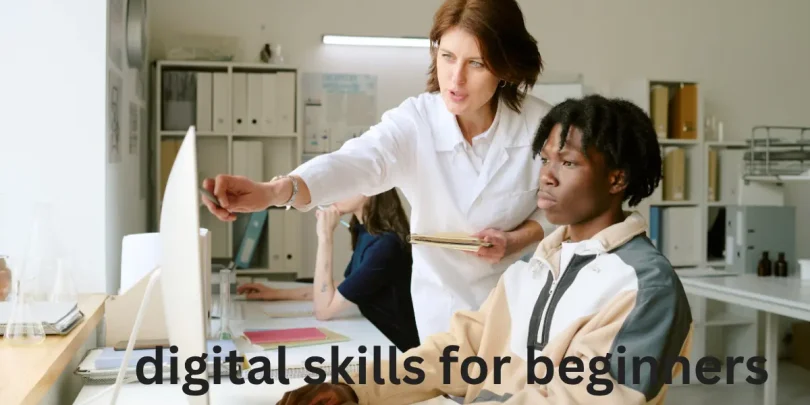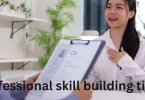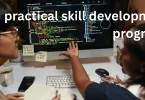Hey there, friend! So, let’s talk about something that almost everyone feels a little nervous about at first — digital skills for beginners. If you’ve ever struggled to figure out how to attach a file in an email, join a Zoom meeting, or make sense of all those “cloud” storage options, you’re definitely not alone. The digital world can feel overwhelming at first, like learning a whole new language. But here’s the good news: anyone can learn it — yes, even if you think you’re “not techy.” All it takes is patience, practice, and the right kind of guidance (that’s what we’re doing here). This article is your cozy, no-judgment zone to learn the basics — explained in plain English. We’ll chat about what digital skills really mean, why they’re so important today, and how you can start learning them without feeling stressed or left behind. Real talk: by the end of this guide, you’ll not only understand digital tools but actually feel confident using them in your daily life.
What Exactly Are Digital Skills?
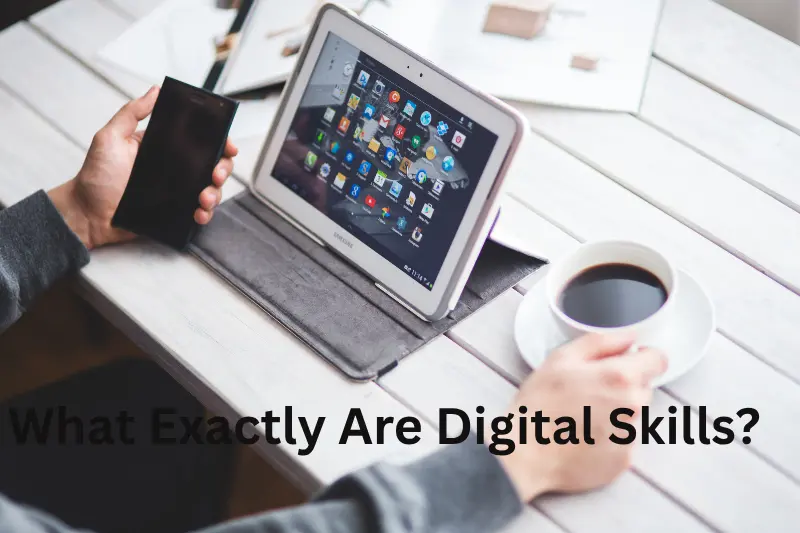
Let’s keep it simple — digital skills are the abilities you need to use technology confidently. Think of them as your toolbox for surviving and thriving in today’s connected world. These skills include things like using a smartphone or computer effectively, sending and managing emails, creating documents, spreadsheets, or slides, using video call platforms like Zoom or Google Meet, browsing the internet safely, understanding social media, and knowing how to store and share files online. Basically, digital skills help you interact with the modern world — whether that’s for work, learning, communication, or even shopping online. When you hear the term “digital literacy,” it’s just another way of saying being comfortable and capable in the online space.
Why Learning Digital Skills Matters
Here’s the deal — digital skills aren’t optional anymore. Whether you’re applying for a job, studying, or even managing personal tasks, digital know-how is at the heart of it all. Having these skills can help you find better job opportunities since most companies expect at least basic tech skills. They let you work remotely or freelance without stress, connect with family and friends across the world, save time by managing bills, bookings, and shopping online, and even learn faster through online courses and digital tools. In short, learning digital skills doesn’t just make life easier — it opens doors to opportunities you might not have imagined before. When you understand how to use digital tools efficiently, you gain independence and control over how you work, learn, and communicate. That’s power.
Starting From Zero: How to Begin Learning
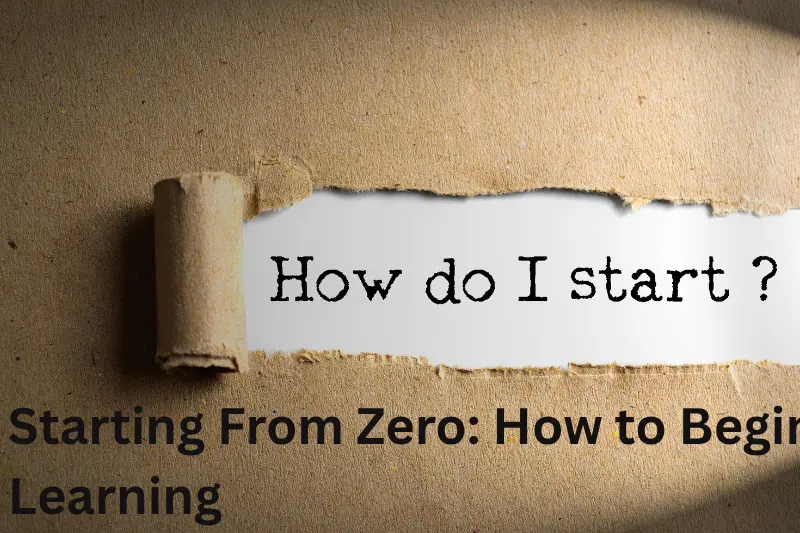
Alright, let’s say you’re starting from scratch. Maybe you just got a new laptop or smartphone and feel unsure where to even start. No worries — here’s a simple roadmap. Start by getting comfortable with your device. Spend time exploring how it works — don’t be afraid to click around! Learn how to turn it on and off, open programs, use the keyboard, and adjust settings. Small wins matter because each click builds confidence. Next, learn the basics of using the internet. Understand how browsers like Chrome, Firefox, or Edge work, how to search on Google, and how to stay safe from sketchy links. Once you’re comfortable online, master email and communication tools. Email is your digital address — you’ll need it for almost everything. Learn to compose messages, attach files, and organize your inbox. Then, try video call platforms like Zoom or Google Meet so you can connect with others face-to-face even when miles apart. After that, explore productivity tools like Google Docs, Sheets, and Slides — these help you create, edit, and share documents effortlessly. The best part? They’re free and beginner-friendly. Finally, familiarize yourself with social media platforms like Facebook, LinkedIn, or Instagram. They can be fun ways to connect, learn, and even build your personal brand. Just remember to protect your privacy while using them.
You may also like to read these articles
Unlock Your Potential with the Best Skill Development Courses Online
Unlock Your Potential with Practical Skill Development Programs
Unlock Future Success with Skill Development for Students
Transform Your Career with Expert Professional Skill Building Tips
Unlock Your Confidence: how to improve communication skills Fast
Common Fears Beginners Have (and How to Beat Them)
Let’s get real for a second — learning digital skills can be intimidating. Maybe you’ve told yourself “I’m too old for this” or “I’ll mess something up.” That’s perfectly normal. But here’s the truth: no one was born knowing how to use a computer. Everyone starts somewhere. One common fear is “I’ll break something.” Relax — you probably won’t. Most systems have undo buttons or ways to reset things. Experiment safely and learn by doing. Another common thought is “I’m too slow.” But speed comes with time. Focus on accuracy first. The more you use technology, the faster your fingers and brain sync up. And then there’s the big one: “It’s too complicated.” Not everything needs to be mastered at once. Start small — learn how to send an email today, and tomorrow, maybe try creating a document. Step-by-step wins always count. The more patient you are with yourself, the faster you’ll grow. Remember, technology was built to make life easier, not harder. You just need to take it one click at a time.
Building Confidence with Practice
Confidence doesn’t come from reading about technology — it comes from using it. The more you practice, the more natural everything becomes. Dedicate 15 minutes daily to exploring something new on your device. Use video tutorials or short online lessons, as they’re often easier to follow than long guides. Ask for help from tech-savvy friends or join online learning communities where people share tips for beginners. Keep a small “tech journal” — jot down what you learn each day. It might sound silly, but writing helps you remember. Over time, you’ll see your progress clearly and realize that the things that once scared you are now second nature.
Key Digital Skills Every Beginner Should Master
Let’s dive deeper into the must-have basics every beginner should aim for. First, learn basic computer operation — how to turn your device on and off, organize files into folders, and use simple programs like Word or Paint. Then, work on typing and keyboard shortcuts. Typing faster can save you tons of time, and there are fun websites like TypingClub that make it easy to practice. Next up, internet search and research — learn to use search engines effectively by typing specific keywords, using quotation marks for exact matches, and checking reliable websites instead of random ones. Online communication is another essential area. Learn email etiquette, messaging apps, and video calls. Good communication online isn’t just about words — it’s also about clarity and tone. File management and cloud storage are crucial too. Understand how to store files safely on your device and online through services like Google Drive or Dropbox. Finally, don’t forget online safety — always use strong passwords, update software regularly, and avoid sharing personal information with strangers. Knowing these basics protects you and your data from unnecessary risks.
Using Digital Skills in Daily Life
Once you’ve learned the basics, the fun part begins — applying them in real life. You can manage your finances through online banking, which saves you time and reduces stress. You can shop smartly through trusted e-commerce platforms and even track your deliveries in real-time. If you enjoy learning new things, online tutorials and video lessons make it easy to develop new hobbies. Love cooking? Watch step-by-step recipe videos. Want to start a side hustle? Explore digital marketing or freelancing websites. The possibilities are endless once you understand how to use digital tools confidently. You can attend virtual classes or webinars, build a resume, and apply for jobs online with ease. Every small action helps you gain more independence and convenience in your daily life.
How Digital Skills Can Change Your Future
Here’s something inspiring — many people who once struggled with basic tech tasks are now running online businesses, freelancing, or managing remote teams. That’s the power of digital skills. They can completely change your future by helping you find online income sources, allowing you to work from anywhere, and empowering you to learn new things throughout your life. You can also use your skills to help others — maybe teach someone else how to use technology. That’s the beauty of it; once you learn, you can pass it on. Digital skills give you control over your time, career, and learning pace. You no longer have to rely on others for simple tasks — instead, you become self-reliant and confident.
Keeping Up with Evolving Technology
Here’s the truth — technology keeps evolving, and that’s okay. You don’t have to know everything. What matters is staying curious. The internet changes, new apps arrive, and tools keep improving, but the basic logic behind them stays the same. You can stay updated by following tech blogs or YouTube channels for beginners. Join free online workshops whenever possible, explore new tools with an open mind, and don’t fear updates — they usually make things easier and safer. The more you stay engaged, the more naturally you’ll adapt to new technologies. Learning never stops, and that’s what keeps your mind active and ready for the future.
The Mindset That Makes Learning Easier
Mindset is everything. If you approach technology thinking it’s too hard, it will feel that way. But if you see it as a tool that makes life easier, learning becomes exciting. Celebrate small wins — sending your first email, downloading your first app, or creating your first online document. Be patient with yourself. Progress takes time. Avoid comparing your learning speed with others — everyone’s journey is unique. And don’t be afraid to ask questions. Most tech problems have simple solutions; you just need to know where to look or who to ask. Remember that curiosity and consistency always win over perfection.
A Quick Actionable Checklist
Here’s a simple checklist to help you stay on track as you build your digital skills: learn the basics of your device (laptop or smartphone), practice using email and video calling tools, explore one new app every week, watch beginner tutorials online, and most importantly, stay consistent. Consistency is the secret to improvement — even five to ten minutes of daily learning adds up over time.
Conclusion
So, there you have it — your friendly guide to digital skills for beginners. Remember, no one becomes a tech expert overnight. What matters most is your willingness to try, explore, and keep learning. The digital world isn’t just for young or “techy” people — it’s for everyone willing to take that first step. You’ve got this. The moment you open your laptop or phone with confidence, you’re already winning. Keep practicing, stay curious, and enjoy the journey — because every click you make is a step toward a smarter, more connected future.
FAQs
What are digital skills for beginners?
Digital skills for beginners are basic computer and internet abilities like using email, social media, online safety, and digital communication tools.
Why are digital skills important today?
They’re essential for work, education, and everyday life — helping people connect, learn, and stay safe in an increasingly digital world.
How can beginners start learning digital skills?
Start with free online tutorials, short courses, or YouTube lessons. Practice regularly and explore tools like Google Workspace or Microsoft Office.
What are some examples of basic digital skills?
Typing, using search engines, managing emails, creating documents, and understanding online safety are core beginner-level digital skills.
Can learning digital skills help with jobs?
Yes! Many jobs now require basic digital skills. Learning them can increase employability and open up remote or online work opportunities.


